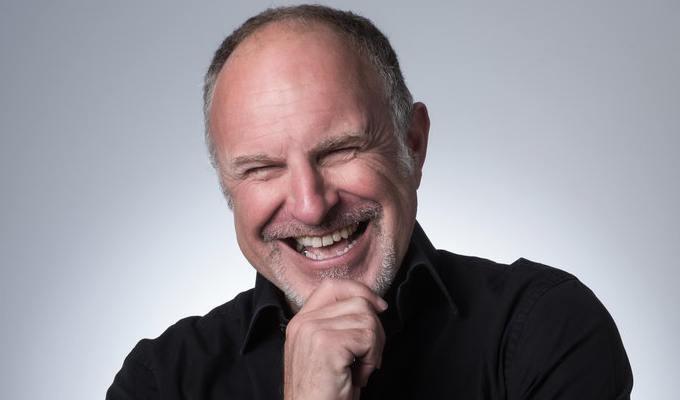Fallen idol
Laurence Clark is disappointed with Ben Elton's attitude to the disabled
The whole nation took a sharp intake of breath at two words uttered by Ben Elton on BBC Breakfast. Well I say the whole nation, but it was more like those of us with enough time on our hands to watch daytime television, myself included.
Anyone who can remember the Eighties will no doubt recall that Ben’s bad language has often caused controversy. But this time around it was seemingly unintentional, as he proudly plugged his upcoming gig for the ‘Spastic Society’.
Even more perplexingly, the BBC presenters did nothing to correct him. At the time I tweeted that it was ‘like we’ve gone back 20 years’ – a phrase that has become used increasingly often amongst us disabled people since the Coalition came to power in May 2010.
I grew up in the days when the likes of the Variety Club of Great Britain and the Stars Organisation for Spastics would put on cringe-worthy fundraising shows for us ‘poor disabled’.
Time has shown that celebrities are not always the best people to speak on important social issues, as Geri Halliwell so ably demonstrated during her stint as a UN Goodwill Ambassador. I still have clear memories of Ben Elton in the early Nineties, supporting a large tick on his forehead (yes that’s not a typo – a tick!), earnestly speaking on behalf of people like myself while looking, for want of a better phrase, like a bit of a tick himself.
But looking back at my teenage years, I really loved Ben’s comedy and, although it’s probably uncool and embarrassing to admit this, he’s probably one of the reasons why I became a stand-up comic.
Indeed when my mum wants to wind me up in that way in which only mothers are capable of, using their in-built complete dossier on your entire existence, she will liken my comedy to his. Admittedly this is usually when she’s just seen a show where I swore a lot.
As someone who has cerebral palsy, the publication of Ben’s book Gridlock when I was a teenager had a big effect on me, as it was the first book I ever read where the central characters were people like me, facing situations which seemed familiar. It’s been years since I last read it and, in many ways, I don’t particularly want to reread it as I strongly suspect that, as with lots of Ben’s other material, time has not been kind and the older; more politically-aware me would find fault. Sometimes nostalgia has its benefits.
I even met Ben in 1993. I queued up at the stage door of the Liverpool Empire after a gig just to shake his hand and chat about Gridlock. But even back then, I felt really uncomfortable with the people he’d positioned on every exit, shaking buckets at people as they left in order to collect money for what was then called the Spastics Society. The pitying reactions this seemed to elicit seemed at odds with the empathy I’d seen expressed for people like me in Ben’s book.
We still have an odd way of viewing disability charity collections. When we donate to other social campaigns such as Amnesty, Greenpeace or a political party, there isn’t that same feeling of pity or helping the less fortunate. That said; maybe past benefactors of the Liberal Democrats nowadays shed a tear at the Frankenstein’s monster they created.
To put this to the test, a while ago I conducted my own little social experiment. I spent a day going round London with a collection bucket to test what would be the most ludicrous fake charitable cause that someone like me could get money for from the British public. The results of my little prank can be viewed here.
To my mind, the fact that people appear not to want to engage with neither myself nor the cause written on the bucket, instead automatically choosing to give me money, demonstrates that some charity collections can actually damage the very cause they’re intended to support.
When I came to do my first show at the Edinburgh Fringe in 2003, I did a spoof charity fundraising show called Stars In Need where I attempted to raise money for hard-up celebrities who boosted their careers with charity work for disabled people.
As a collecting tin was passed round the audience, they watched a heart-rending appeal to give money to stars like Ben Elton who, tragically, ‘in the early Nineties, lost the use of his principles and now suffers from the debilitating condition of talking out of his arse’. It concluded with the startling fact that ‘just 80p would be enough to buy Ben a copy of the Socialist Worker to remind him of what he once stood for’.
I guess the point I’m trying to make here is that the Big Society idea was meant to be about everyone looking out for their fellow human beings. But in practice, it seems to me that we’re going back to the days where disabled people are passive recipients of other people’s do-gooding, rather than active, engaged members of society.
And as for Ben? Well as the old saying goes, you should never meet your heroes!
- Laurence Clark: Inspired will be on at the Underbelly Bristo Square at 17.20 during the Edinburgh Fringe
Published: 13 May 2012






